Jay K.
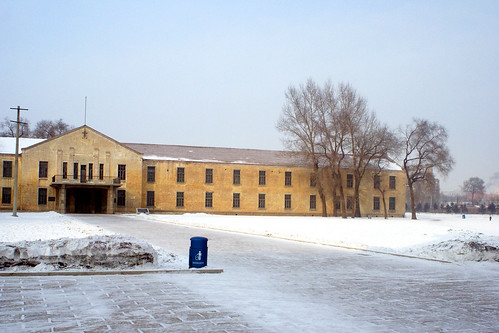
Ep.30 What is a nation?
Yesterday Obama Barak was sworn into the office. He made many promises for America. He will fight for his country, the United States of America. Many people outside of U.S. also celebrated his inauguration together, but in the end, Obama is the president of USA which means he is only accountable for his own country, not others (of course, his policies can affect other countries and sometimes benefit others, but that’s not his ultimate purpose).
What is a nation? The word “nation” is from the Latin word “natio” which is derived from the word “natus sum” meaning “I have been born”. The word “natio” was used when even the modern concept of nation-state didn’t exist. It meant a group of foreigners. Although there wasn’t a simple concept of nationalism among the Romans, yet there were still differences and demarcations between peoples and people differentiated themselves from others on criteria of blood, place of birth, culture or religion.
Why am I talking about this nation shit instead of talking about my winter trip? It’s because the question “what is a nation?” was the question I repeatedly asked myself during this winter trip. I first asked the question to myself when we visited the Japanese Germ Warfare Experimental base, known as the 731 division. During WW2, the Japanese army set up this research base where they could test many germ weapons and other researches on real human subjects—mainly Chinese and Korean prisoners.
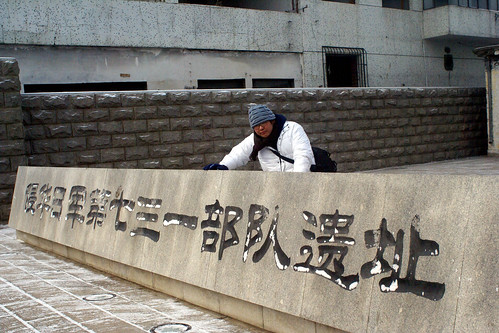
[The administration building of the 731 division, now it is a museum]
When this base was uncovered in the 80s, it became a hot issue among East Asian countries. According to the record, over 4000 people were exterminated at this base. I don’t want to describe how disgusting and inhumane the tests were. You can simply think what Nazis did to its prisoners. The 731 division base, which is the museum now, actually looks like a concentration camp. It was really grim and gloomy.
One interesting thing is that I visited this base with a Japanese guy—Zheng chun whom I slept with one the same bed. He is actually one who really wanted to visit this site. He didn’t directly answer to my question why he wanted to visit the base, but he said the 731 division is famous even in Japan although it is not on textbook. After watching the base, I thought, how people could do this kind of stuff on other human beings? So cruel and inhumane. I think it was only possible because they were doing that for their “country”. A single reasonable human being cannot carry this kind of torturing on other human beings, but a single reasonable nation can do this kind of things on other nations. It is called “the mob psychology”. A nation or nationalism is definitely a human invention, but sometimes it goes beyond human control and reason.
I coincidentally visited the Jewish synagogue the next day. The city of Ha’erbin is located right next to Russia, so that a lot of Russians Jews immigrated to Ha’erbin during WW2. The city has the largest Jewish population in China. This old temple is restored by CCP and now it is used for Jewish historical and heritage museum. I wasn’t interested in this museum, but Jeremy, who is Jewish and one of my travel companions, wanted to have a look. We visited the synagogue after seeing the Church of St. Sophia.
The museum was nice. I think that Jewish community donated lots of money to this museum. Visiting this museum again threw the same question to me; what is a nation? When I visited the museum, the war between Israel and Hamas was still going on. I knew that Jeremy supported Israel. I asked myself, why couldn’t they just stop fighting and live in peace? Of course, it’s not easy to answer that question. In my opinion, it is easy to say who first instigated the conflict between Israel and Palestine and whose fault it was, but nowadays it is not easy to tell who’s right and who’s wrong. There will be no genuine ceasefire until all countries perish on Earth. If there is no country, there will be no war as John said before.
On the last day in Ha’erbin, I was left alone because all of my five companions flew back to Beijing that morning. I also planned to leave Ha’erbin that night in order to get to my next destination. After checking out, I walked to Korean minority heritage museum. The museum was having a special exhibition. The exhibition was on one of the most respected figure in Korea, Ahn Joong Geun.
I was familiar with the city of Ha’erbin even before I came to China. The city has a very special meaning to Koreans and many Koreans like me are familiar with the city. The city is famous because of Ahn, who assassinated Ito Hirobumi, the former governor of Korea which was then colonized by Japanese Empire. Ito was one of the highest government officials in Japan and he was one who led the fascist Japan to the World War. He was regarded as the axis of evil in East Asia.
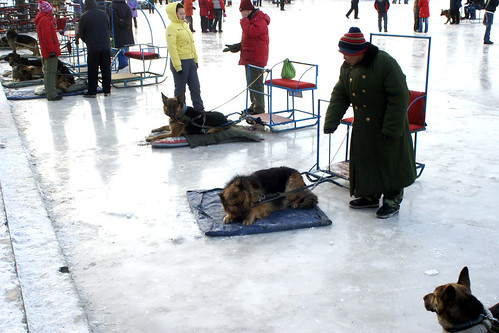
Ahn, who was working for independency of Korean peninsula at that time, found out Ito was coming to Ha’erbin to meet Russian officials and planned the assassination. In 1909, exactly a century ago, at the Ha’erbin railroad station, he successfully killed Ito with his handgun. He was soon arrested by the Russians and handed over to the Japanese. He was jailed and immediately sentenced to death by the Japanese.
To the Koreans’ point of view, Ahn is a hero of the country who bravely took an honorable revenge on the enemy of his own people. However, to the Japanese, he was a mere terrorist. The exhibition for Ahn wasn’t very impressive, but it was worth visiting. It also gave me a time to think about the question of nationalism. I don’t agree with Ahn’s method—assassination, but I agree with his cause.

[Ahn]
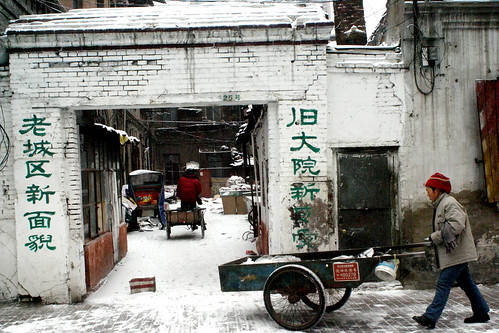
[Snow!]
From the Japanese germ base to Ahn’s exhibition, I kept thinking about the same question over and over again. Ha’erbin which is now a beautiful city of snow and ice has a grim history. I don’t know why there is so much hatred between people. Why do we have a war in the first place? I once wrote a short fiction about that topic, but I still don’t know why. Whether I found the answer or not, I had to leave Ha’erbin and move forward; the question lingered onto my next destination and kept haunting me.
[The Dragon Tower in Ha'erbin]
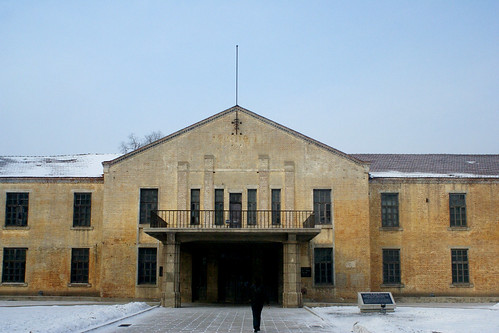
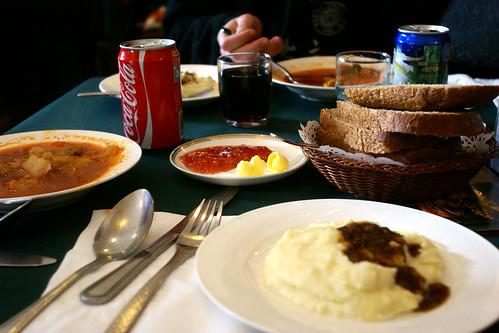
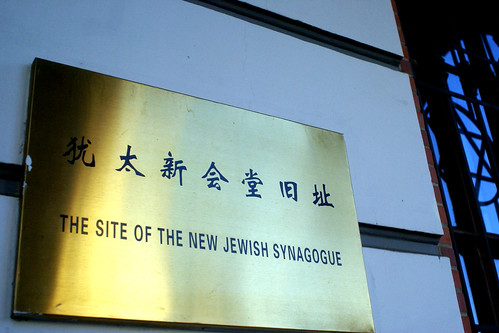

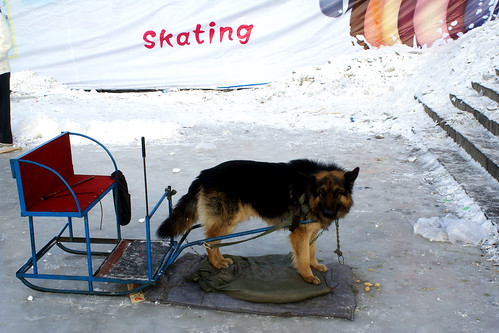
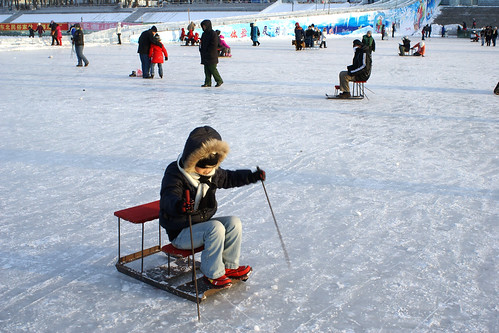
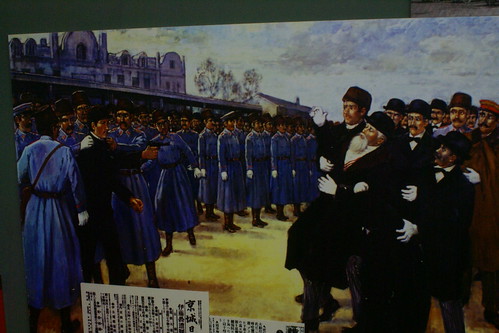
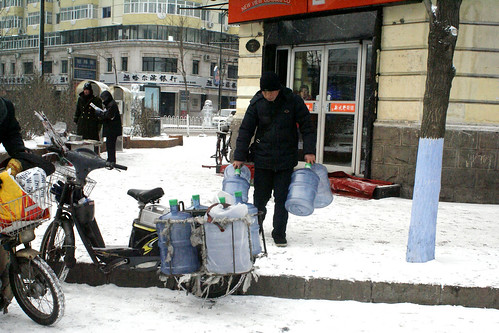
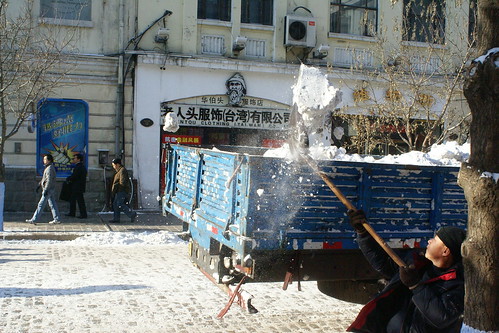
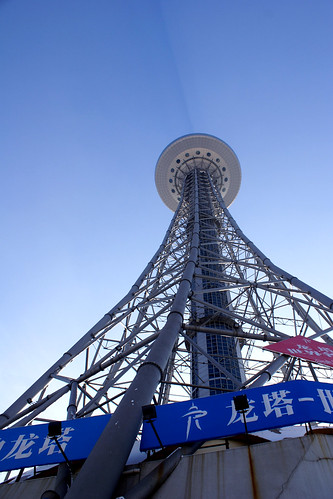
No comments:
Post a Comment